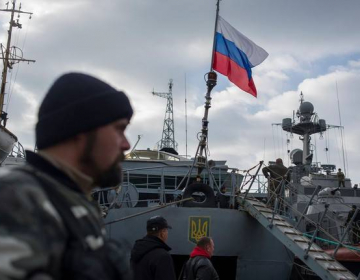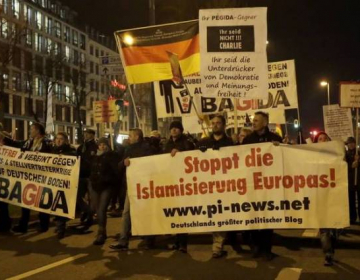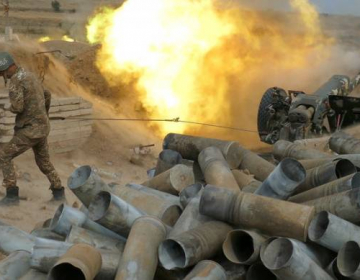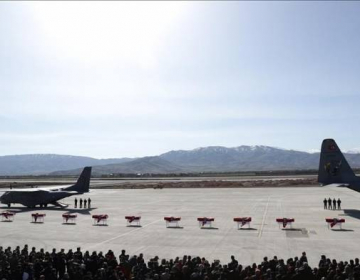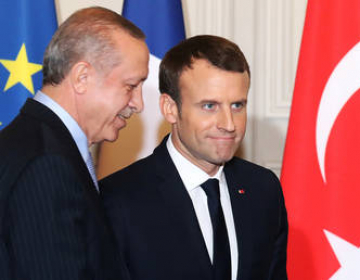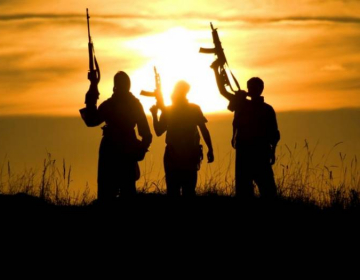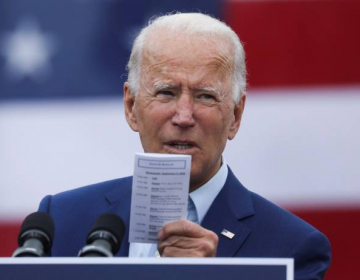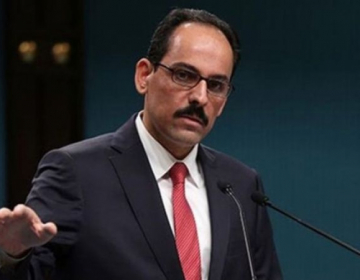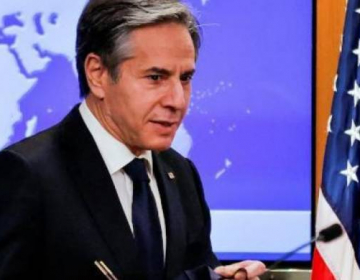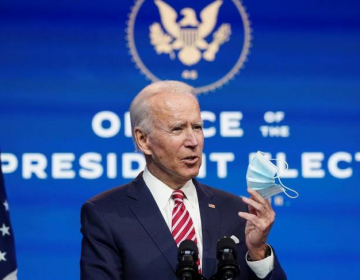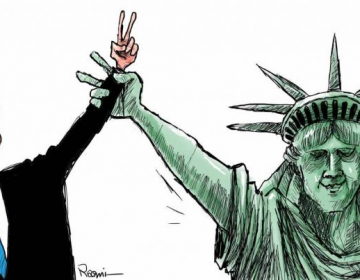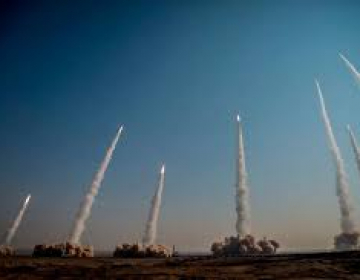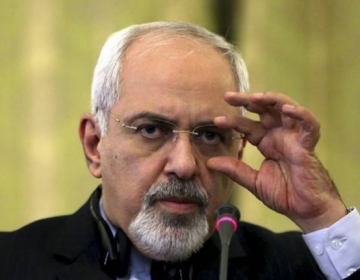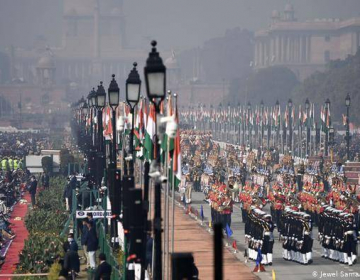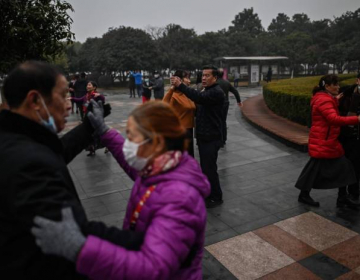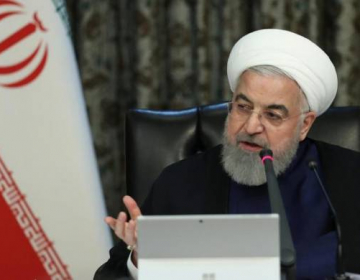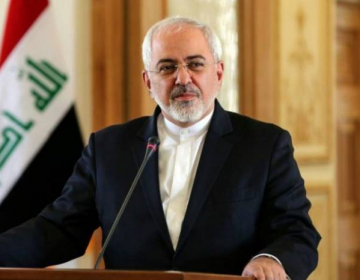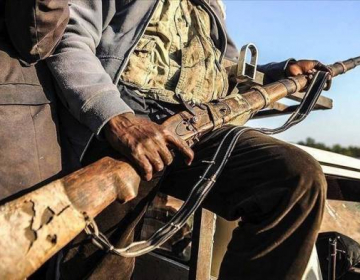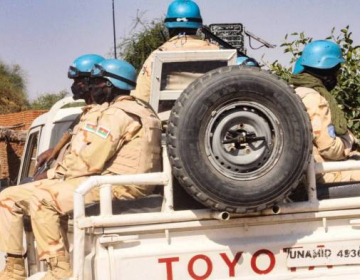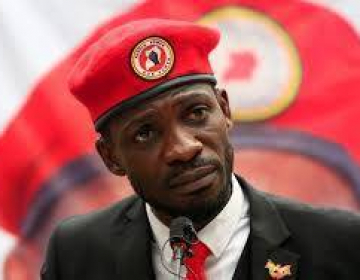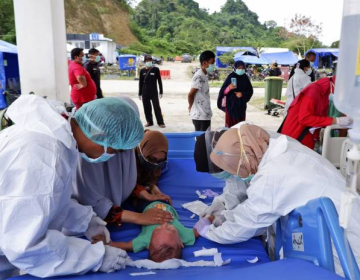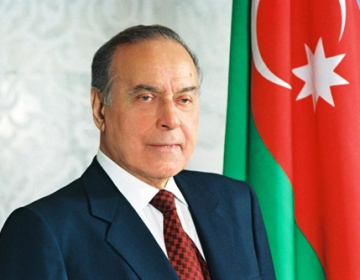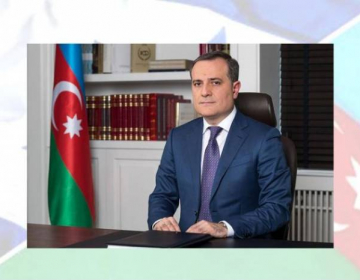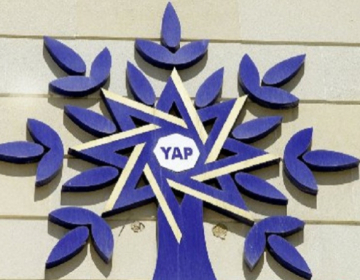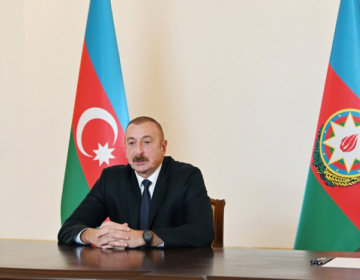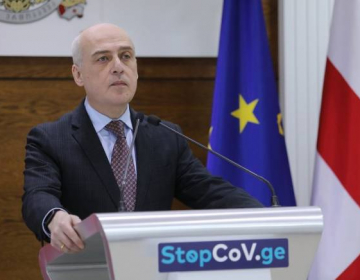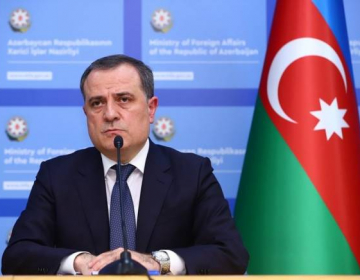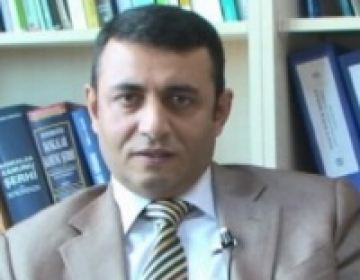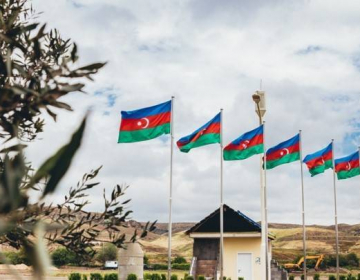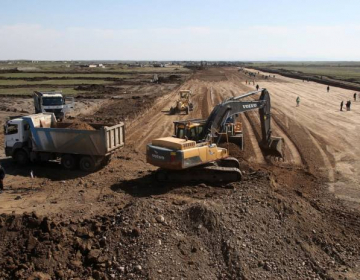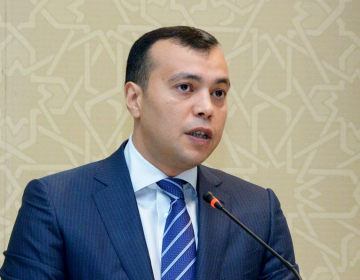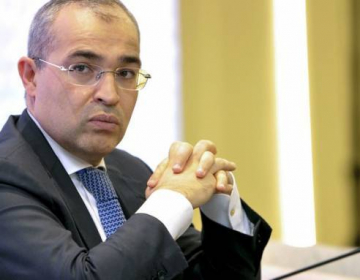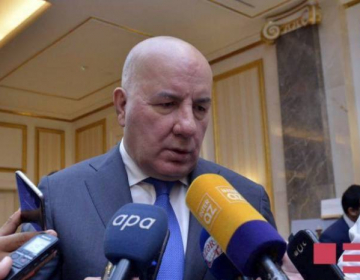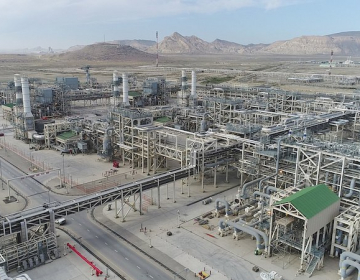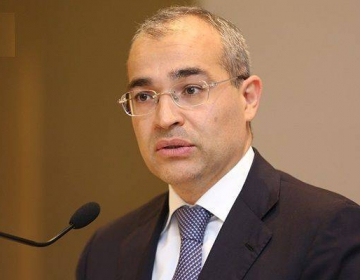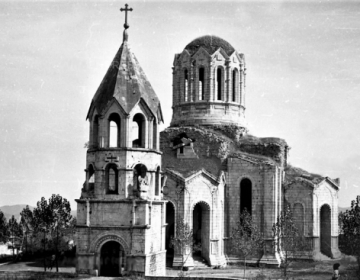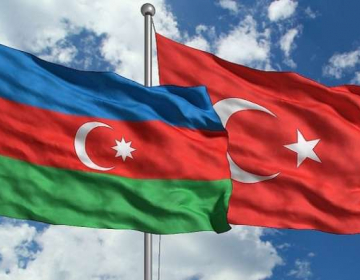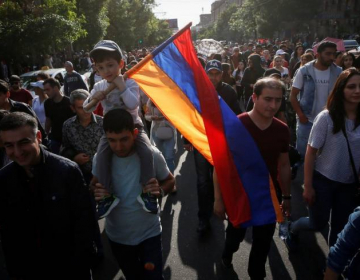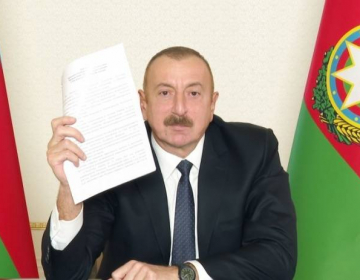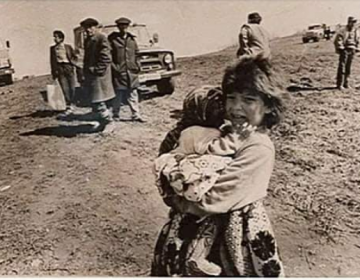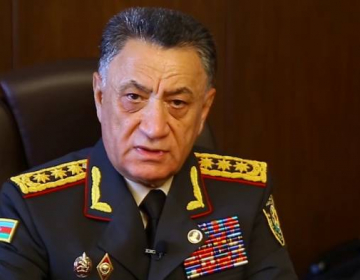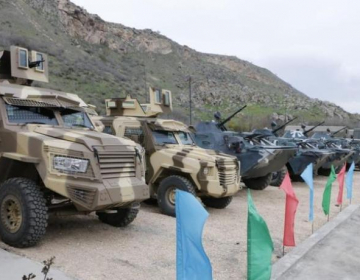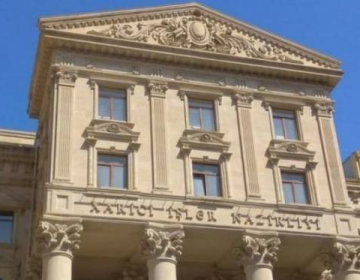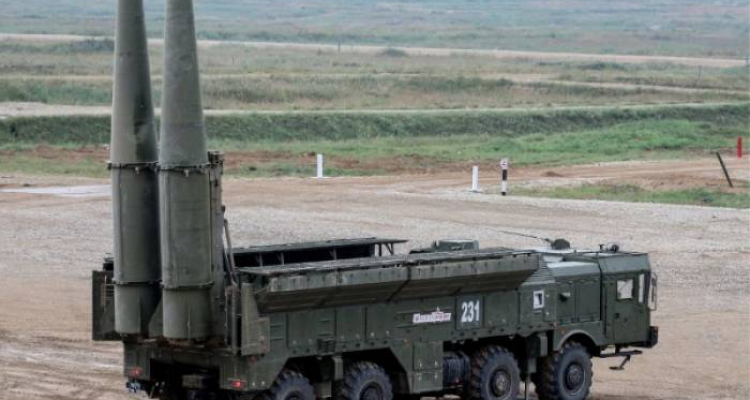Mahman Aliev
ASTNA.biz
Armenian Prime Minister Nikol Pashinyan, in the midst of the internal political crisis, aggravated even before the General Staff's demand for his immediate resignation, questioned the effectiveness of the Russian “Iskander” short and medium-range missile system.
This super weapon, which created a stir in the West, when in 2019 Putin moved his missile divisions to the borders of the European Union, according to Pashinyan, worked against Azerbaijan by 10%.
On February 23, Pashinyan responded to former Armenian President Serzh Sargsyan, who said that he would have used “Iskander” on the fourth day of the war in Nagorno-Karabakh. Sargsyan also asked why these complexes did not affect the oil and gas facilities of Azerbaijan.
The prime minister responded that the Russian missiles were "not usable" and did not fully detonate. “Let him ask the question why the “Iskander” missile didn’t explode? Or, why did it explode by 10 percent, for example?” Pashinyan addressed Sargsyan.
This statement by Pashinyan was ridiculed by Russian experts and the media, who accused the prime minister of incompetence, and all the propaganda involved tried to prove the absurdity of the statement of the head of the Armenian government.
However, there was no laugh in the Kremlin offices. On February 25, Putin had a telephone conversation with Pashinyan, during which the prime minister said that he had been misinformed.
The Prime Minister's press secretary, Mane Gevorgyan, said that Pashinyan discussed his recent statement about the “Iskander” during a telephone conversation with Russian President Vladimir Putin. “As a result of comparing the available facts and information, the Prime Minister of Armenia came to the conclusion that he was not reported correctly about this situation,” she said.
Most likely Pashinyan made such a confession under pressure. On November 19 last year, the former chief of the General Staff of Armenia Movses Hakobyan made a public statement that Armenia had used “Iskander.” “I know that they were shooting, but in what direction, I will not say,” he said, answering a question from a journalist.
On February 25, the same Hakobyan stated that the Armenian army did not have any problems with the “Iskander” complexes; therefore, he does not understand the words of Prime Minister Nikol Pashinyan about their possible malfunction. What did Hakobyan mean? Did the missiles reach their target 100%?
On November 10, 2020, the American publication “The Drive” announced that Armenia used
“Iskander” against Azerbaijan during the 44-day war and posted a video made by Armenian
soldiers. https://twitter.com/fab_hinz/status/1325922423355674627
The video shows a rocket in the air, and then two missiles are launched from one rocket launcher with an interval of one minute under the hooting of Armenian soldiers pointing and shouting "Azerbaijan", "Azerbaijan".
They were “Iskander.” The fact is that on the launchers “Tochka-u” and “Scud” are based one missile, and the video shows the basing of two missiles, like “Iskander”.
Arastun Orujlu, a political analyst living in the United States, claims that the “Iskander” were intercepted by Israeli air defense missiles on their way to Baku. Movses Hakobyan echoed him.
“The “Iskander” ballistic missile was launched by Yerevan directly at the capital a few days before the ceasefire. This worried Azerbaijani officials. But the Israeli Barak-8, the anti-missile defense system operated by the Azerbaijani armed forces, shot down it,” Hakobyan admitted on March 4.
During the war, Russian experts stubbornly spoke about the use of “Tochka-U” missiles by the Armenians against Azerbaijan, in particular, those that struck a residential quarter of Ganja. The Russian side has excluded and is now excluding the use of “Iskander” by the Armenians.
Official Baku also denies shelling of its territory by Armenian “Iskander”. President Aliyev played along with Putin and, in unison with the Russian side made fun of Pashinyan.
Azerbaijan did not record the use of Russian “Iskander” missile systems by Armenia during the conflict in Nagorno-Karabakh, he said at a press conference for foreign and local media on February 26, a day after the Putin-Pashinyan conversation.
“I don’t want to be ironic about this, but there were certain comments from the Russian side. We must try hard to make this rocket explode at 10% of its power ... The current situation in Armenia reminds us of some kind of tragicomedy, how a rocket exploded at 10% of its power - this is a joke,” Aliyev said.
In fact, by his statement Pashinyan questioned the effectiveness of Russian weapons on the battlefield and thereby to some extent undermined the confidence of potential buyers, which is fraught with serious complications for Russia in the arms market. At the same time, he made a pass towards the United States, whose relations were seriously complicated by Russia. The White House accuses the Kremlin of violating the Intermediate-Range Nuclear Forces Treaty (INF Treaty). The deployment of Russian “Iskander” near the western borders with a new 9M729 missile (NATO classification - SSC-8) was one of the reasons for the US withdrawal from the INF Treaty.
NATO believes the missile's range violates the terms of the treaty. The Western military believes that the “Iskander” are capable of covering a distance not up to 450 km, as Moscow claims, but several thousand. Under Trump, the United States refused to prolong the treaty and today Moscow hopes to reach an agreement with the Biden administration.
On October 26, 2020, President Vladimir Putin announced that Russia is ready to abandon the deployment of 9M729 missiles, that is, “Iskander” missiles, in the European part if NATO countries take similar measures. Prior to this, the United States announced plans to deploy hypersonic missiles on Russia's western borders to deliver ballistic missiles to conventional targets.
The statement of Putin, who decided to play back, was heard overseas. Prior to his election as President, Biden spoke out against the US withdrawal from the INF Treaty and insisted on maintaining the agreement. Putin very much hopes for this.
The good news for this was the 5-year extension on February 3 of the Russian-American treaty on measures to further reduce and limit strategic offensive arms (START).
Pashinyan's statement turned out to be out of place by chance or not, he knows for sure. But if Washington has real evidence, about which Pashinyan speaks with hints of 10%, then this is a serious trump card for complicating relations, in which Putin is not interested. In this sense, the master of the Kremlin becomes dependent on whether the United States will consider whether “Iskander” was used or not. This circumstance limits Putin's actions against the Pashinyan government. Is not this connected with today's public refusal of ex-President Robert Kocharian to lead the opposition and advocate a further settlement of the Karabakh conflict within the framework of the OSCE Minsk Group?
pia.az

